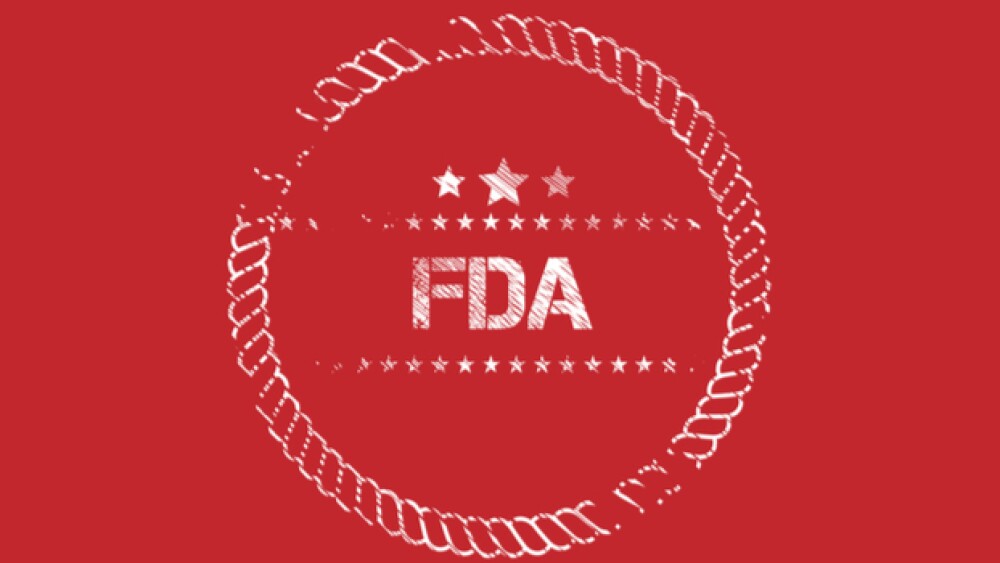Because of the government shutdown, which as of Monday, January 14 is into its fourth week, 40 percent of the U.S. FDA employees were furloughed. However, the two approvals described here should still be on track.
Because of the government shutdown, which as of Monday, January 14 is into its fourth week, 40 percent of the U.S. Food and Drug Administration (FDA) employees were furloughed. There’s been a fair amount of media attention paid to how this affects routine food inspections—they weren’t being performed—but less attention was paid to how it affected drug approvals.
The agency is continuing to carry out reviews funded by fiscal year (FY) 2018 Prescription Drug User Fee Act user fees, so the two approvals described here should still be on track. However, the FDA is not currently accepting FY 2019 user fees until the government gets back to work.
Forbes noted on Thursday, January 10, “Consequently, the FDA has suspended reviews of existing Investigational New Drug (IND) and Biologics License Applications (BLA) applications not covered by user fees and is not reviewing applications for new drugs and biologics submitted during the shutdown period, except for emergency INDs and BLAs. The FDA is also not reviewing medical device applications submitted during the lapse period. And, the FDA is curtailing work on regulatory guidance documents pertaining to medical devices, drugs, and biologics.”
Exelixis’ Cabometyx for Previously Treated Advanced Hepatocellular Carcinoma
The FDA has a target action date of Monday, January 14, 2019 for Exelixis’ supplementary New Drug Application (sNDA) for Cabometyx (cabozantinib) for patients with previously treated advanced hepatocellular carcinoma (HCC). The company also announced that on March 28, 2018, with its partner Ipsen, the application for this to the European Medicines Agency (EMA) had been validated. On November 15, 2018, the EMA approved Cabometyx as a monotherapy for HCC in adults who have previously been treated with sorafenib.
“This approval of Cabometyx in the European Union is a very important milestone for our partner Ipsen and marks significant progress for people living with liver cancer, which is the second-leading cause of cancer death worldwide,” stated Michael M. Morrissey, Exelixis’ president and chief executive officer. “This patient community is in dire need of new options to treat this aggressive disease, and we are excited to work with Ipsen to make this treatment available to patients in the European Union and other countries worldwide.”
Under the terms of Exelixis’ and Ipsen’s deal, Ipsen will pay Exelixis a milestone payment of $40 million for the approval of the second-line treatment of HCC. The European approval was based on data from the CELESTIAL trial of patients with advanced HCC who received prior treatment with sorafenib. Cabometyx demonstrated a statistically significant and clinically meaningful improvement in overall survival (OS) compared to placebo. The drug has also been approved in Europe for advanced renal cell carcinoma (RCC) in adults who were previously treated by VEGF-targeted therapy and for previously untreated intermediate- or poor-risk advanced RCC.
Liver cancer causes more than 700,000 deaths a year, with more than 800,000 cases diagnosed each year. Liver cancer incidence has more than tripled in the U.S. since 1980. HCC is the most common type of liver cancer and makes up about 75 percent of the estimated 42,000 new cases in the U.S. last year.
Immunomedics and Sacituzumab Govitecan for Triple-Negative Breast Cancer
The FDA has a target action date of Friday, January 18 for Immunomedics’ sacituzumab govitecan for patients with metastatic triple-negative breast cancer (mTNBC) who had at least two previous treatments. The company’s Biologics License Application (BLA) was filed and granted with Priority Review status. If approved, it will be the first and only antibody-drug conjugate (ADC) approved for mTNBC.
On December 6, 2018, Immunomedics updated results from its Phase II trial of sacitizumab govitecan as a monotherapy in mTNBC. The drug showed an objective response rate (ORR) of more than 30 percent among heavily pre-treated patients and a manageable safety profile. Response rates to chemotherapy in pre-treated mTNBC patients are generally low.
“We believe these results show that sacituzumab govitecan can be a viable treatment option and help alleviate the unmet need in mTNBC,” stated Robert Iannone, head of R&D and Immunomedics’ chief medical officer, at the time. “We have shared these updates with the FDA during its ongoing priority review of our Biologics License Application for accelerated approval of sacituzumab govitecan in metastatic TNBC.”





